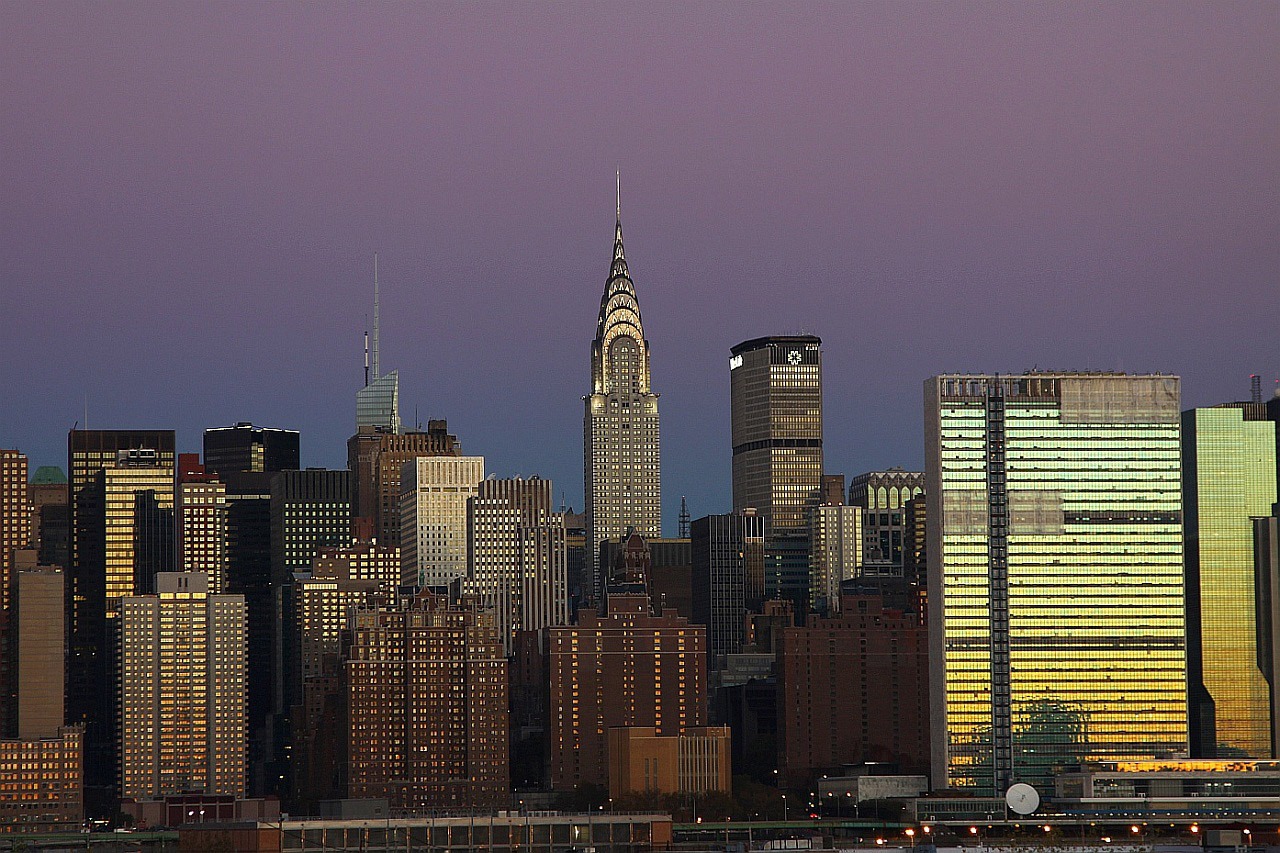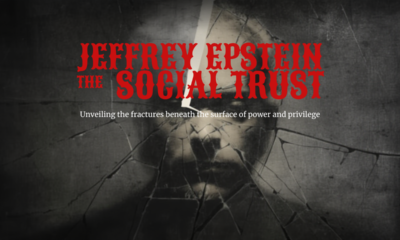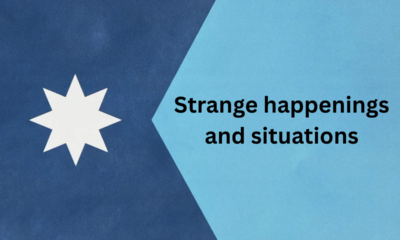Executive
A Cauldron of Cultural Forces Threatening Our Body Politic
The widespread reaction to the murder of UnitedHealth CEO Brian Thompson is a symptom of deleterious cultural forces at work.

The widespread reaction to the murder of UnitedHealth CEO Brian Thompson is a symptom of deleterious cultural forces at work.
Assassins have their reasons, I suppose, but it is almost always peculiarly personal demons that drive their deadly acts. The world, after all, is full of people who mutter and complain about politics and society but only a handful of depraved souls respond by committing the gravest sin.
Cultural forces dictated an appalling reaction to a murder
The dark forces that led a man – alleged to be Luigi Mangione – to gun down UnitedHealthcare CEO Brian Thompson on the streets of New York last week are almost certainly rooted more deeply in the tortured contours of the killer’s mind than in the current state of healthcare in the United States.
Still, Thompson’s murder, far more than the thousands of other homicides committed in the U.S. this year, feels like a blow against the body politic. The CEO was not a political leader like Lincoln, McKinley, or JFK, but he died, in part, because his killer apparently saw him as a powerful symbol of a healthcare system he despised. Like assassins before him, the decision of Thompson’s killer to seek change through violence violates our democratic commitment to peaceful order. His bullets were aimed at all of us, at the foundations of the stability, safety, and rule of law that we depend on.
It would be bad enough if Thompson’s death were simply the twisted expression of one troubled soul. But a shocking number of Americans have lionized the murderer. The Mangione look-alike contests, T-shirts, and celebratory memes echo the comments of political leaders such as Rep. Alexandria Ocasio-Cortez and Sen Elizabeth Warren who seemed to justify Mangione’s actions. “Violence is never the answer,” Warren said, “but people can only be pushed so far.”
AOC on CEO Brian Thompson: "This is not to say violence is justified, but…"
pic.twitter.com/bLiQ1Z0pkk— End Wokeness (@EndWokeness) December 12, 2024
Uncertainty fuels grievance
Yes, healthcare is expensive; insurance companies seem built for frustration. Murder, however, is never justified – or justifiable. The twisted response to Thompson’s assassination illuminates a deepening sickness across the country, a cauldron of cultural forces that threaten our body politic more than a single assassin’s bullets.
We live in an age of grievance. The most important event of the 21st century was the financial meltdown of 2007-09, when millions of Americans lost their jobs in a flash. Few people have trusted their future fortunes ever since. This glowering instability spawned a broad sense that the system is broken. The Tea Party movement and Occupy Wall Street protests that followed in its wake were the first signs of a growing discontent. This anger found more expression on the right through the rise of Donald Trump, who claimed the system was rigged against ordinary Americans, and on the left, which advanced the idea that the United States is a deeply racist, homophobic patriarchy that seeks to stifle opportunity for most of its citizens. The message from both sides: If things aren’t working out, it’s not your fault, it’s the system.
The culture fosters senses of entitlement and self-aggrandizement
We live in an age of entitlement. Our sense of grievance is braided with our sense of entitlement. As more Americans believe the deck is stacked against them, they expect society to make them whole. This is not just a wish but a growing reality, as about one in three Americans receives government assistance. As it weakens personal initiative, this growing dependence spawns resentment when every need is not met.
We live in an age of self-aggrandizement. It is difficult for today’s entitled grievance collectors to deal with setbacks because our culture has, in many ways, elevated each person into a kind of god. Our political divisions are so angry because they are fueled by the belief that each of us possesses the truth, that the world should be ordered by our beliefs. When that does not happen, many of us become deeply frustrated. We do not see obstacles and disappointments as the normal course of politics and life but as evidence of a conspiracy that poses an existential threat to our towering sense of self.
Cultural forces are making us ill
We live in an age of growing mental illness. Those developments are particularly dangerous in a society suffering dramatic increases in mental disorders. Rates of depression and anxiety among Americans have risen dramatically since 2010, especially among the young, as have suicide rates. A study published in 2022 found that more than 20% of adults described their mental health as “fair” or “poor,” and about one-third of adult respondents said they feel anxious much of the time.
We live in an age of loneliness. Almost half of all Americans said they have three or fewer friends, according to a 2021 study by the Survey on American Life – in 1990 the figure was 27%. As rates of marriage and birth also decline, we are increasingly becoming a society of people with no one to talk to but themselves.
We live in an age of increasing political violence. Such action is still blessedly rare, but the left’s broad defense of the Black Lives Matter protests that erupted in 2020 and the right’s less forceful but significant efforts to downplay the Jan. 6 assault on the Capitol have helped legitimize political violence as a response when society fails to conform to people’s expectations. The two attempts on Trump’s life this summer, and the bizarre manner in which much of the media has shrugged them off, suggests a frightening normalization of the pursuit of one’s desires by any means necessary.
Acknowledging the problem is the first step to solving it
Brian Thompson’s murder will not have been in vain if we use it to recognize and respond to the dark cultural forces that are strangling people’s minds and fraying our nation. There is no magic wand to wave them away, but the healing starts by acknowledging that we the people are troubled.
This article was originally published by RealClearPolitics and made available via RealClearWire.
J. Peder Zane is a columnist for RealClearPolitics and an editor at RealClearInvestigations. He was the book review editor and books columnist for the News & Observer of Raleigh for 13 years, where his writing won several national honors, including the Distinguished Writing Award for Commentary from the American Society of Newspaper Editors. He has also worked at the New York Times and taught writing at Duke University and Saint Augustine’s University. He has written two books, “Off the Books: On Literature and Culture,” and “Design in Nature” (with Adrian Bejan). He edited two other books, “Remarkable Reads: 34 Writers and Their Adventures in Reading” and “The Top Ten: Writers Pick Their Favorite Books.”
Note: the profile image by Ellen Whyte is licensed under the Creative Commons Attribution/Share-alike 4.0 International License.
-

 Civilization3 days ago
Civilization3 days agoWhy Europe Shouldn’t Be Upset at Trump’s Venezuelan Actions
-

 Executive4 days ago
Executive4 days agoHow Relaxed COVID-Era Rules Fueled Minnesota’s Biggest Scam
-

 Constitution5 days ago
Constitution5 days agoTrump, Canada, and the Constitutional Problem Beneath the Bridge
-

 Christianity Today3 days ago
Christianity Today3 days agoSurprising Revival: Gen Z Men & Highly Educated Lead Return to Religion
-

 Civilization4 days ago
Civilization4 days agoThe End of Purple States and Competitive Districts
-

 Executive3 days ago
Executive3 days agoWaste of the Day: Can You Hear Me Now?
-

 Executive4 days ago
Executive4 days agoWaste of the Day: States Spent Welfare in “Crazy Ways”
-

 Guest Columns5 days ago
Guest Columns5 days agoWhy We Need Lent












